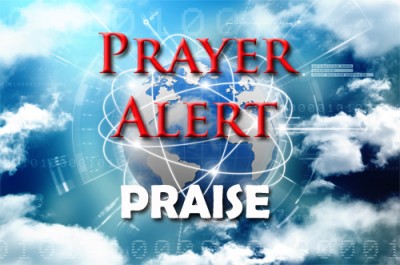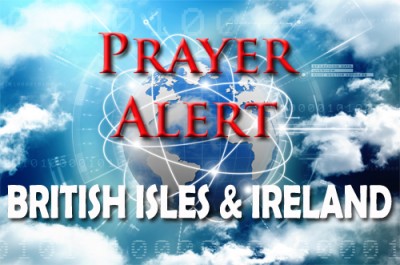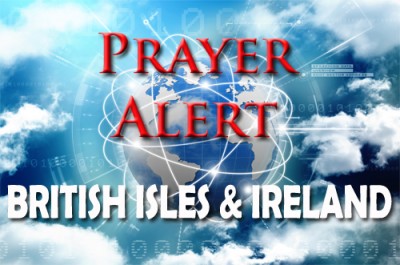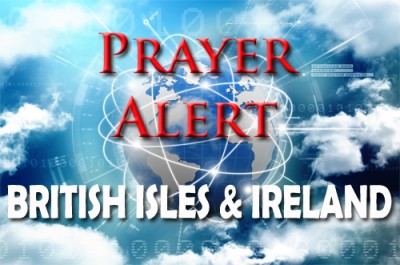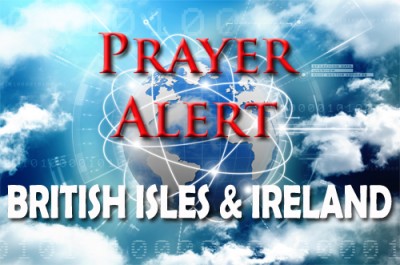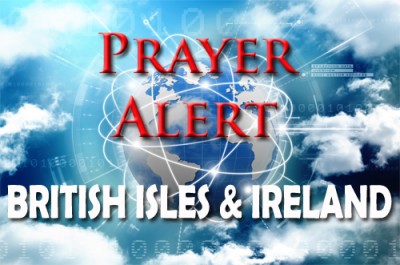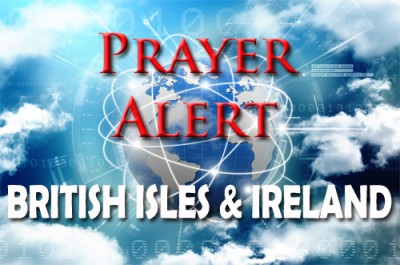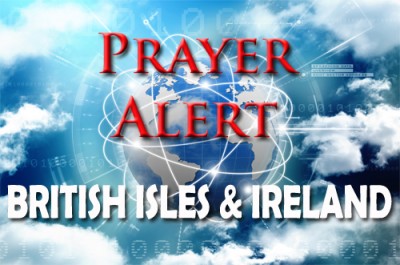Ground Zero message of forgiveness
16 Sep 2016As the US marked the 15th anniversary of 9/11 last Sunday, a YouTube video was released of a Bible recovered at Ground Zero after the terrorist attacks. The Bible had a particular message to convey. Joel Meyerowitz spent nine months at Ground Zero taking photos in the aftermath of 9/11. A firefighter working there gave him pages from a Bible welded to a piece of steel. Meyerowitz marvelled that the Bible was preserved intact, and even more that it was turned to a passage from Matthew 5:38-39 (KJV) which says, ‘Ye have heard that it hath been said, An eye for an eye, and a tooth for a tooth: but I say unto you, That ye resist not evil: but whosoever shall smite thee on thy right cheek, turn to him the other also.’ Meyerowitz said, ‘Of all the pages in the Bible that it could be opened at, that was remarkable.’
Trumpet Call
16 Sep 2016Ian Cole writes, ‘You will agree that we are living in a time when extraordinary things are happening at local, national and international levels on a daily basis. The same can be said for the Global Church worldwide. Day by day we are receiving reports of extraordinary moves of God, often in the most desperately needy places on earth. On 15 October, at Trumpet Call - National Day of Prayer - we are joining with church, prayer and mission partners to pray and declare that 2016/17 is going to see the beginnings of extraordinary moves of God across our nations. We shall worship, pray and declare that in villages, towns and cities, as we live in unity and speak out the Good News of Jesus, He will come in His wonderful grace and mercy and transform lives, heal broken hearts and bodies, restore families and bring freedom for the oppressed. In other words an extraordinary break-out of God’s Kingdom where we live! We look forward to seeing you on the day.’
Reuniting refugee children with families
16 Sep 2016Following Lord Roberts’ recent question to the Government about ‘what plans they have to speed up the reuniting of refugee children in the camps of Calais and Dunkirk with their families in the United Kingdom’, the Archbishop of Canterbury commented:‘The question has been extremely specifically put, about children who have families in this country; this is not about all unaccompanied children.’ He also said, ‘We are still having continual reports of delays for really quite young children who are not being brought across. Does the Minister not agree that where children - particularly young ones - have families in this country, there is no reason why they should not be brought across within the day?’
Controlling behaviour in relationships
16 Sep 2016The recent Archers storyline on Radio 4 has drawn people’s attention to the rise in controlling behaviour in relationships. One of the hardest parts of being a parent is seeing your child hurt in a relationship. It’s vital to be aware of the difference between behaviour that is thought of as ‘rites of passage’ and behaviour which has more serious implications. Pray for organisations such as Women’s Aid, Refuge and others who give support and advice to those in or concerned about a situation of controlling behaviour. Pray for the counsellors listening to and advising people around the issues of healthy relationships. Pray for those who recognise a friend or relative being controlled by their partner to take appropriate action. Pray for more specialist training on domestic abuse for all who work in the criminal courts and the family courts. To read the Women’s Aid statement after the Radio 4 verdict click the ‘More’ button.
Faith schools rules to be relaxed?
16 Sep 2016The government is set to relax rules on how faith schools select pupils, to allow new Catholic schools to open in England, according to a Number Ten source. It comes as the education secretary said ministers will take a pragmatic look at new grammar schools. Justine Greening said she wanted to offer parents choice but children would not be split into ‘winners and losers’. The source said, ‘We're going to change the rule, to allow new Catholic schools to open, while making faith schools of all kinds do more to ensure their pupils integrate with children of other backgrounds.’ Pray that the furore over reintroduction of grammar schools will not affect the move to remove the cap on faith-based admissions, so that the Catholic Church will be able to meet the current parental demand for thousands of new Catholic school places across the country.
Call to bless the UK
16 Sep 2016Dr Clifford Hill writes, ‘It is vital that those in Britain who know the Lord declare the Gospel with their words and lives.’ In the aftermath of the vote to leave the EU all the forecasts of doom from those who wished Britain to remain within the EU have not been fulfilled. The economy has not suffered dire consequences, the housing market has not collapsed, unemployment is down and retail sales are up, giving a general feeling of buoyancy and hope for the future. If God's blessings upon the nation are to continue, there is a huge responsibility upon those who know Him and know the Bible. Only 44% of the nation claim to be Christians and 48% have no religion.’ There is a huge responsibility for spirit-led evangelism. May the body of Christ grow in faith and action.
Many in General Synod support LGBT
16 Sep 2016A letter to the College of Bishops, signed by three deans, eight archdeacons, and 72 members of the House of Laity, states, ‘We are keen that the College of Bishops is unequivocal in its acknowledgement that all, including those who identify as LGBT, are essential to the health and future of our church and mission to the wider world.’ Synod member and LGBT activist Jayne Ozanne said that the church needs to be seen as a church for all, and bishops can't fudge this any longer. The House of Bishops will meet in November, and is likely to discuss feedback from the recent College of Bishops' meeting. After July's Synod, Andrea Williams of Christian Concern and Wilberforce director Dr Joe Boot issued a statement saying that the paucity of the biblical argument to support anything other than that of the Orthodox and presently-held position had been ignored, and replaced by an appeal to secular norms.
Getting scriptures to the lost
16 Sep 2016In thirty years over 100 million Bibles have been printed to keep up with global demand. Yet in the UK 90% of people don’t read it. One third of 15-year-olds don’t know that the nativity story is from the Bible, and the same percentage of adults believe the plot of The Hunger Games is from the Bible. Many people don’t think the Bible is relevant to them. The Bible Society is determined to change that, and is working to help people recognise the value of the Bible by developing resources that help local churches to engage more deeply with Scripture. It is sending thousands of volunteers into primary schools to share Bible stories with a generation almost entirely unfamiliar with them. In politics, media and the arts they are bringing the Bible to life in fresh, exciting and relevant ways with a range of activities and resources in both English and Welsh.
